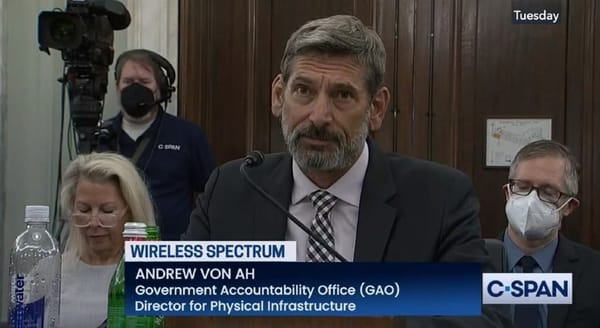President Trump Signs Take It Down Act
Trump signs act making explicit deepfakes illegal.
Maggie Macfarlane, Associated Press

WASHINGTON, May 19, 2025 – President Donald Trump signed the Take It Down Act imposing penalties for online sexual exploitation into law on Monday afternoon.
“Under the law I will sign in just a moment,” Trump said in a White House Rose Garden signing ceremony, “anyone who intentionally distributes explicit images without the subject’s consent will face up to three years in prison.”
The bill sets stricter penalties for the distribution of non-consensual intimate imagery online – what's also known as "revenge porn."
“This will be the first ever federal law to combat the distribution of explicit imagery posted without people’s consent,” Trump said. He went on to describe the damage “deepfake” content has had specifically on young women in the United States, saying, “Countless women have been harassed with deepfakes and other explicit images distributed against their will.”
Joining Trump was First Lady Melania Trump, who had previously used her debut public appearance in March to lobby House lawmakers to pass the bill.
“We affirm that the well-being of our children is central to the future of our families in America,” the First Lady said in her opening remarks.
“Working with our First Lady, we have shown that bipartisanship is still possible,” Trump said before signing the law.
Trump had Melania sign it, too, despite what sounded like a mild objection on her part.
“C'mon, sign it anyway,” the president told his wife. “She deserves to sign it,” he said.
After she added her signature, the president showed the document bearing both of their names to the audience. Melania Trump's signature is merely symbolic because first ladies are not elected and have no formal role in the signing of legislation.
In March, Melania Trump used her first public appearance since resuming the role of first lady to travel to Capitol Hill to lobby House members to pass the bill following its approval by the Senate.
Crime to ‘knowingly publish’ intimate images without consent
The bill makes it a federal crime to “knowingly publish” or threaten to publish intimate images without a person’s consent, including AI-created “deepfakes.” Websites and social media companies will be required to remove such material within 48 hours after a victim requests it. The platforms must also take steps to delete duplicate content.
Elliston Berry, a young woman affected by deepfakes, attended the signing, and was heralded by both the President and First Lady. Berry had been fighting to have a fake explicit photo of hers taken down from Snapchat, for over a year.
“We salute you and thank you very much, and it’s an honor to have you with us today,” Trump told Berry.
Trump thanked supporters of the new law, including the bill’s sponsor Sen. Ted Cruz, R-Texas, and Rep. Maria Salazar, R-Fla., who supported the bill in the House.
The bill passed the House in April by a 409-2 vote and cleared the Senate in February by unanimous consent.
Highlighted in first public appearance as First Lady
In March, Melania Trump used her first public appearance since resuming the role of first lady to travel to Capitol Hill to lobby House members to pass the bill following its approval by the Senate.
“AI and social media are the digital candy for the next generation, sweet addictive and engineered to have an impact on the cognitive development of our children,” she said. “But unlike sugar, these new technologies can be weaponized, shape beliefs and, sadly, affect emotions and even be deadly.”
The measure isn't without critics. Free speech advocates and digital rights groups say the bill is too broad and could lead to censorship of legitimate images, including legal pornography and LGBTQ content. Others say it could allow the government to monitor private communications and undermine due process.
The first lady appeared at a Capitol Hill roundtable with lawmakers and young women who had explicit images of them put online, saying it was “heartbreaking” to see what teenagers and especially girls go through after this happens to them. She also included a victim among her guests for the president's address to a joint session of Congress the day after that meeting.
After the House passed the bill, Melania Trump said the bipartisan vote was a “powerful statement that we stand united in protecting the dignity, privacy and safety of our children.”
Her advocacy for the bill is a continuation of the Be Best campaign she started in the president's first term, focusing on children's well-being, social media use and opioid abuse.
In his speech to Congress in March, the president said he looked forward to signing the bill.
“And I'm going to use that bill for myself, too, if you don’t mind,” he said, adding, that there's nobody who "gets treated worse than I do online. Nobody.”
Associated Press writer Darlene Superville contributed to this report.











